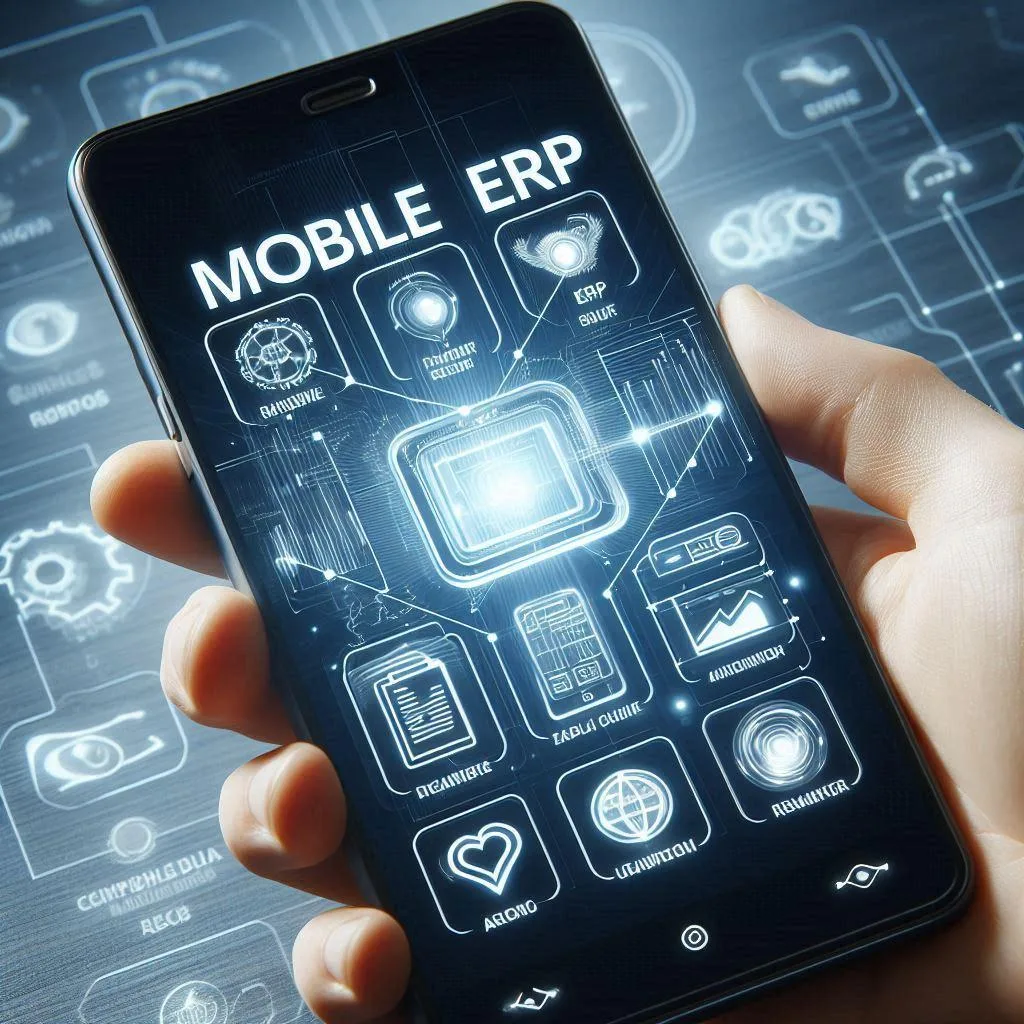What is Mobile ERP?
Mobile ERP refers to the capability of accessing and utilizing Enterprise Resource Planning (ERP) software through mobile devices such as smartphones and tablets. This allows users to perform essential ERP tasks, regardless of their physical location, providing real-time access to data and streamlined processes. Mobile ERP systems are designed to enhance productivity, improve operational efficiency, and enable informed decision-making from anywhere at any time.
Evolution of ERP Systems
The evolution of ERP systems can be traced back to the 1960s with the development of Material Requirements Planning (MRP) systems. These early systems focused on inventory control and production planning. In the 1980s, MRP evolved into Manufacturing Resource Planning (MRP II), which expanded to include additional manufacturing processes. By the 1990s, ERP systems emerged, integrating various business functions such as finance, HR, and supply chain management into a single system. The 2000s saw the advent of ERP II, incorporating CRM and Business Intelligence. Today, modern ERP systems leverage AI, machine learning, and IoT to provide real-time data and advanced analytics.
Importance of Mobile ERP in Modern Business
Mobile ERP is crucial in today’s fast-paced business environment. It enables real-time access to critical business information, allowing stakeholders to make data-driven decisions on the spot. By providing remote accessibility, mobile ERP supports a mobile workforce, enhancing flexibility and productivity. Additionally, mobile ERP systems streamline operations, reduce manual data entry, and improve overall efficiency. This technology is essential for businesses looking to stay competitive and agile in the digital age.
Key Features of Mobile ERP
Real-Time Data Access
One of the most significant features of mobile ERP systems is real-time data access. This allows users to retrieve and update business information instantly, ensuring that data is always up-to-date and accurate. Real-time data access is crucial for making informed decisions quickly and efficiently.
Remote Accessibility
Mobile ERP applications provide remote accessibility, enabling users to access ERP functionalities from anywhere at any time. This feature is particularly beneficial for employees who work remotely or travel frequently, as it allows them to stay connected and productive regardless of their location.
User-Friendly Interface
A user-friendly interface is essential for the successful adoption of mobile ERP apps. Simplified designs and responsive layouts make navigation straightforward, ensuring that users can easily perform their tasks. An intuitive interface enhances user satisfaction and encourages widespread use of the system.
Integration with Existing Systems
Integration with existing systems is a key consideration when implementing mobile ERP. A seamless integration ensures that the mobile ERP solution works harmoniously with other business applications, providing a unified system for managing operations. This integration helps eliminate data silos and ensures data consistency across platforms.
Enhanced Security Measures
Security is a top priority for mobile ERP systems. Enhanced security measures such as encryption, multi-factor authentication, and secure data transmission methods are implemented to protect sensitive business information. These measures ensure that mobile ERP systems are secure and reliable, safeguarding data integrity and privacy. Learn more about securing ERP systems for modern business operations here.
Benefits of Mobile ERP
Increased Efficiency and Productivity
Mobile ERP systems significantly increase efficiency and productivity by streamlining business processes and reducing manual data entry. Employees can access real-time data and perform tasks on the go, leading to faster decision-making and improved operational efficiency. Discover more benefits of ERP systems here.
Improved Decision-Making
With real-time access to critical business information, mobile ERP systems enable better decision-making. Stakeholders can analyze up-to-date data and make informed decisions quickly, enhancing overall business performance.
Better Customer Service
Mobile ERP systems improve customer service by providing employees with instant access to customer data and order information. This allows for faster response times and more personalized service, leading to higher customer satisfaction.
Cost Savings
Implementing mobile ERP can lead to significant cost savings by reducing the need for physical infrastructure and minimizing manual processes. Additionally, mobile ERP systems can help identify inefficiencies and optimize resource allocation, further reducing costs.
Flexibility and Scalability
Mobile ERP systems offer flexibility and scalability, allowing businesses to adapt to changing needs and grow without significant disruptions. The ability to access ERP functionalities from anywhere provides businesses with the agility needed to stay competitive in a dynamic market.
Challenges and Considerations
Security Concerns
While mobile ERP systems offer enhanced security measures, there are still concerns about data breaches and unauthorized access. Businesses must implement robust security protocols and continuously monitor for potential threats to ensure data protection.
Data Synchronization Issues
Data synchronization can be a challenge with mobile ERP systems, especially when users are working offline. Ensuring that data is accurately synchronized across all devices and systems is crucial for maintaining data integrity.
User Adoption and Training
Successful implementation of mobile ERP requires user adoption and proper training. Employees must be trained to use the system effectively, and businesses should provide ongoing support to address any issues that arise.
Integration with Legacy Systems
Integrating mobile ERP with legacy systems can be complex and time-consuming. Businesses must carefully plan and execute the integration process to ensure a smooth transition and minimize disruptions.
Cost of Implementation
The cost of implementing mobile ERP can be significant, especially for small and medium-sized businesses. However, the long-term benefits of increased efficiency and productivity often outweigh the initial investment.
Industries Adopting Mobile ERP
Manufacturing
Manufacturing companies use mobile ERP to streamline production processes, manage inventory, and improve supply chain efficiency. Real-time data access and remote monitoring capabilities are particularly beneficial in this industry.
Retail
In the retail sector, mobile ERP systems help manage inventory, track sales, and enhance customer service. Retailers can access real-time sales data and make informed decisions to optimize operations.
Healthcare
Healthcare organizations use mobile ERP to manage patient records, streamline administrative processes, and improve patient care. Mobile access to critical information allows healthcare professionals to provide timely and accurate care.
Construction
Construction companies benefit from mobile ERP by managing projects, tracking resources, and ensuring compliance with regulations. Mobile access to project data helps improve coordination and efficiency on construction sites.
Transportation and Logistics
In the transportation and logistics industry, mobile ERP systems enhance fleet management, track shipments, and optimize routes. Real-time data access and remote monitoring capabilities improve operational efficiency and customer satisfaction.
Popular Mobile ERP Solutions
SAP Mobile ERP
SAP Mobile ERP offers a comprehensive suite of tools for managing various business functions on the go. It provides real-time access to data, enabling users to make informed decisions and improve operational efficiency.
Oracle Mobile ERP
Oracle Mobile ERP provides robust features for managing finance, HR, and supply chain operations. Its mobile applications offer real-time data access and seamless integration with existing systems.
Microsoft Dynamics 365
Microsoft Dynamics 365 offers mobile ERP solutions that integrate with other Microsoft products, providing a unified platform for managing business operations. Its user-friendly interface and real-time data access enhance productivity and decision-making.
NetSuite Mobile
NetSuite Mobile is known for its comprehensive mobile ERP capabilities, including financial management, CRM, and inventory control. Its mobile-first design ensures a seamless user experience across devices. Learn more about the benefits of NetSuite Mobile here.
Infor M3
Infor M3 offers mobile ERP solutions tailored for various industries, including manufacturing, distribution, and fashion. Its mobile applications provide real-time data access and advanced analytics to support informed decision-making.
Case Studies
Successful Implementation in Manufacturing
A leading manufacturing company implemented a mobile ERP system to streamline production processes and improve inventory management. The real-time data access and remote monitoring capabilities resulted in increased efficiency and reduced operational costs.
Retail Business Transformation with Mobile ERP
A retail business adopted mobile ERP solutions to enhance inventory management and customer service. The mobile applications provided real-time sales data and improved decision-making, leading to higher customer satisfaction and increased sales.
Healthcare Efficiency with Mobile ERP
A healthcare organization implemented mobile ERP to manage patient records and streamline administrative processes. Mobile access to critical information allows healthcare professionals to provide timely and accurate care, improving patient outcomes.
Future Trends in Mobile ERP
AI and Machine Learning Integration
The integration of AI and machine learning into mobile ERP systems is set to revolutionize how businesses operate. These technologies enable advanced analytics, predictive maintenance, and automated decision-making processes. AI-driven insights can help businesses identify trends, optimize operations, and improve overall efficiency. Learn more about machine learning applications and future trends here.
IoT and Mobile ERP
The Internet of Things (IoT) is another significant trend in mobile ERP. IoT devices can provide real-time data from various sources, enhancing visibility and control over business processes. For example, sensors in manufacturing equipment can monitor performance and predict maintenance needs, reducing downtime and improving productivity.
Cloud-Based Mobile ERP
Cloud-based mobile ERP solutions are becoming increasingly popular due to their scalability, flexibility, and cost-effectiveness. These systems allow businesses to access ERP functionalities from anywhere, supporting remote work and collaboration. Cloud-based solutions also offer easier updates and maintenance, ensuring that businesses always have access to the latest features and security enhancements.
Augmented Reality (AR) in Mobile ERP
Augmented Reality (AR) is poised to transform mobile ERP by providing immersive and interactive experiences. AR can be used for training, maintenance, and troubleshooting, allowing employees to visualize complex processes and perform tasks more efficiently. For example, AR can guide technicians through equipment repairs, reducing errors and improving productivity. Discover more about emerging technologies that are revolutionizing businesses here.
Conclusion
Summary of Mobile ERP Benefits
Mobile ERP systems offer numerous benefits, including increased efficiency, improved decision-making, better customer service, cost savings, and enhanced flexibility. By providing real-time access to critical business information, mobile ERP enables businesses to operate more effectively and respond quickly to changing market conditions.
The Future Outlook
The future of mobile ERP looks promising, with advancements in AI, IoT, cloud computing, and AR set to drive further innovation. These technologies will enable businesses to optimize operations, improve productivity, and stay competitive in a rapidly evolving market. Explore more about the next frontier in advanced computing here.
Final Thoughts and Recommendations
Implementing a mobile ERP system can be a game-changer for businesses looking to enhance their operational efficiency and agility. However, it is essential to carefully consider the challenges and plan the implementation process thoroughly. By leveraging the latest trends and technologies, businesses can unlock the full potential of mobile ERP and achieve long-term success.


